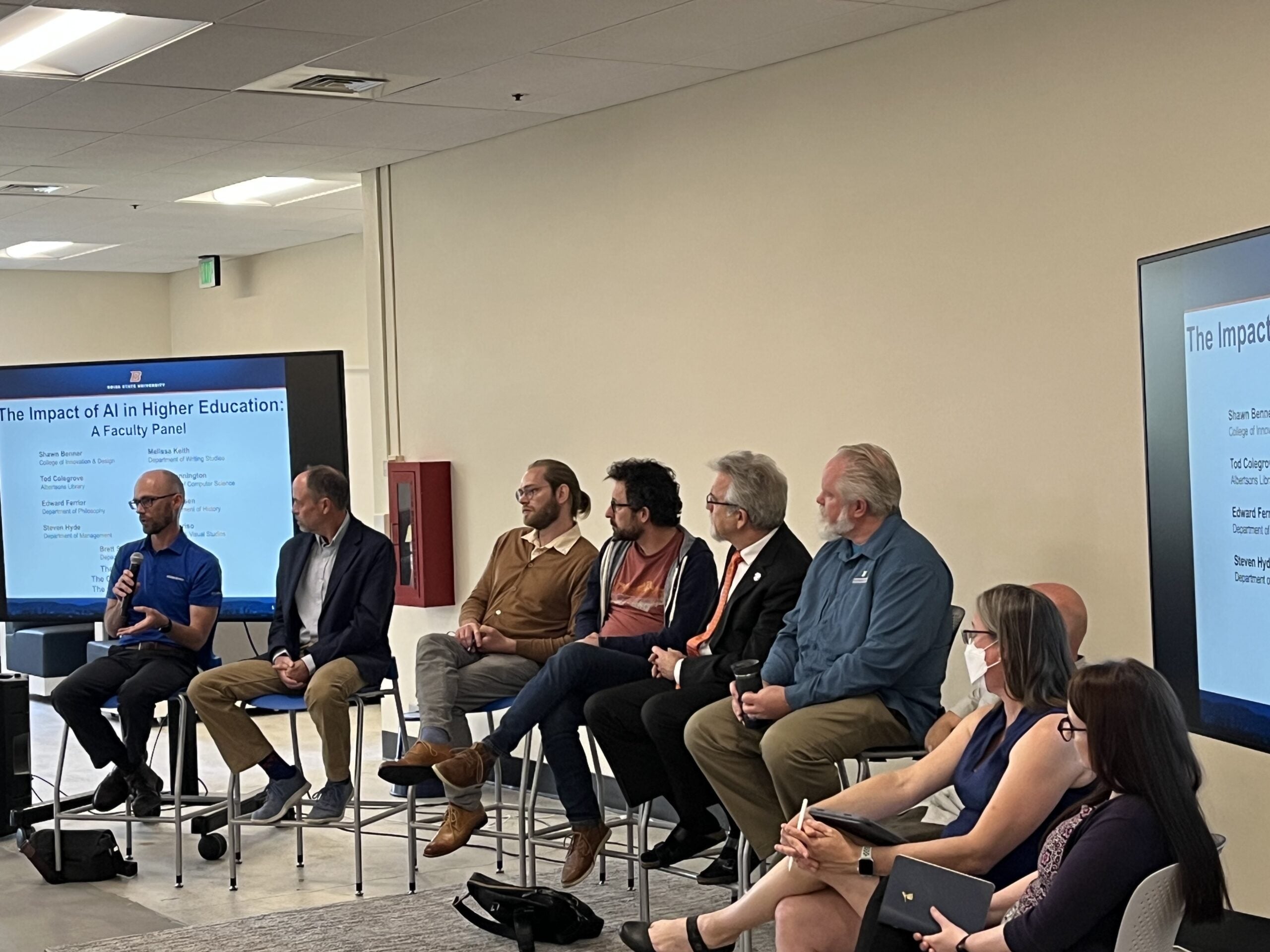
Artificial Intelligence (AI) is changing as you are reading this. These rapid developments in the AI environment add to the already existing uncertainty around this topic. For that reason, the AI in Education Taskforce recently held a panel discussion for Boise State educators to learn about how AI is impacting higher education from campus members with different perspectives on the topic.
One of the biggest challenges around AI in any educational setting is the topic of academic integrity, or using AI to cheat. Currently, Boise State Canvas sites include the option to activate an AI detector for Canvas assignments, but the fast-changing nature of AI tools make accuracy almost impossible. The panelists suggested that educators use the detector’s report only as a piece of information in solving the cheating puzzle, and not as de facto evidence, due to a reasonable possibility of false reports. A more effective approach for faculty to detect cheating is to build relationships with their students, and get to know them, their writing, and current academic abilities in order to become aware of potential plagiarism. If you are suspecting a student of academic dishonesty, reach out to Sarah Wilson (sarahwilson481@boisestate.edu), Director of the Academic Integrity Program of the Dean of Students Office, who offers a holistic student-centered resolution process.
Engaging students in meaningful work about the value of their education is another strategy to prevent using AI to cheat. The Writing Center is conducting an undergraduate research project to collect interdisciplinary perspectives on how Boise State students are engaging with AI tools such as Chat GPT. While the project is in its initial stages of research design, current data based on a pilot study found that students feel justified to utilize AI tools when they perceive assignments and tasks as “busy work”, or not important for their major. However, if students understand the connection between the assignment and their own learning they appear to shy away from AI assistance. Based on this preliminary finding, transparency around why students are asked to learn a subject or task in a certain way, and how it will help them succeed in their careers and life, must be present. This also supports students moving away from the consumer of education perspective toward the knowledge producer role. If you have questions about your course or assignment design, let us know by completing the CTL consultation request form.
While AI tools provide many reasons for concern, some panelists pointed out that it can also offer promising opportunities. Letting students use AI in the classroom under guidance can create new excitement for learning, as well as support conversations around critical thinking, ethics, and the potential labor issues that come with the development of AI. Readers are encouraged to reach out to the AI in Education Taskforce by emailing Ai-in-education-group@boisestate.edu with any questions they may have about AI’s impact.